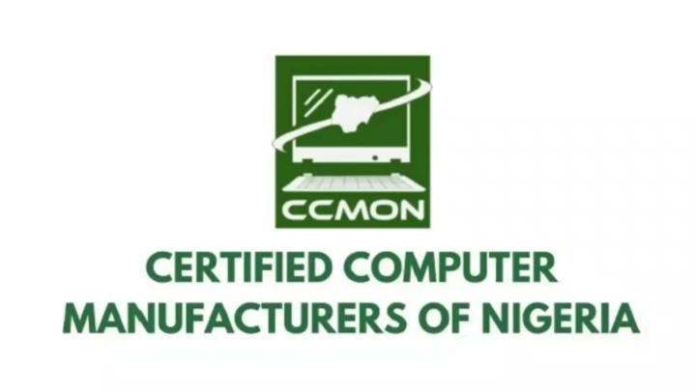The Certified Computer Manufacturers of Nigeria (CCMON) has accused contractors of the National Information Technology Development Agency (NITDA) of deploying counterfeit SPEEDSTAR computers, describing the act as economic sabotage against Nigeria and a direct threat to the government’s Renewed Hope Agenda.
In a letter to NITDA jointly signed by CCMON President, Engr. Adenike Abudu, and Secretary-General, Tosin Ilesanmi, the association condemned the counterfeiting of SPEEDSTAR PCs, a brand owned by one of its members, BETA Computers calling it a national embarrassment to Nigeria’s technology ecosystem.
According to CCMON, BETA Computers first reported the counterfeiting to NITDA on August 24, 2024, but no decisive action had been taken to identify and prosecute the culprits.
The group noted that while counterfeit complaints have surfaced in the past, this case presented credible and actionable evidence that should be pursued to a logical conclusion.
“We believe this effort will benefit NITDA even more, as her drive for quality local content in IT will be strengthened, lauded and seen as sustainable,” CCMON stated, while commending the regulator for its past support of local technology development.
The association stressed that widespread adoption of genuine locally made PCs by government agencies would create jobs and boost Nigeria’s economy.
Speaking on the matter, Mr. Will Anyaegbunam, former President of the Information Technology Association of Nigeria (ITAN) and Managing Director of BETA Computers, accused the industry regulator of enabling practices that harm local Original Equipment Manufacturers (OEMs).
He questioned: “Where is the Nigeria First project in ICT? Who is frustrating IT growth and development in Nigeria? Who is promoting local content in ICT? Whose agenda is NITDA really pursuing? Who are the faking cabals that NITDA seems to be protecting?”
Anyaegbunam, who also serves as a member of CCMON’s Board of Trustees, warned that NITDA’s perceived inaction could be interpreted as indifference or possible complicity. He described piracy as a serious economic crime that undermines local manufacturing capacity, discourages foreign investment, and tarnishes the reputation of Nigerian-made products.
“This case presents an auspicious opportunity for NITDA to unveil the possible syndicate behind this dastardly crime and bring them to justice,” he said, adding that failure to act decisively could damage Nigeria’s quest for global competitiveness in technology.
Anyaegbunam concluded by urging NITDA to take the issue seriously, noting that protecting and promoting local manufacturing capacity is essential to realising the president’s economic vision.











